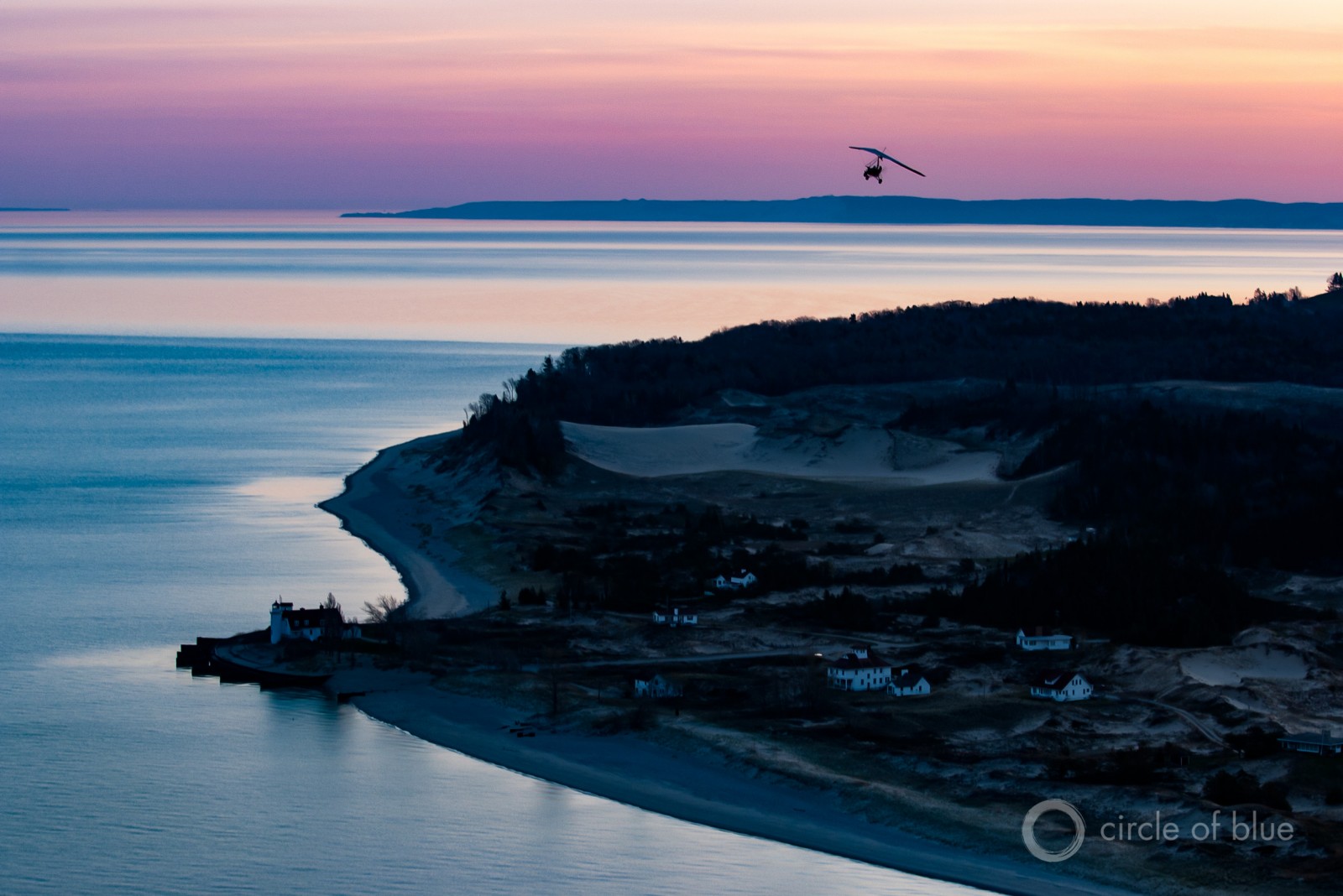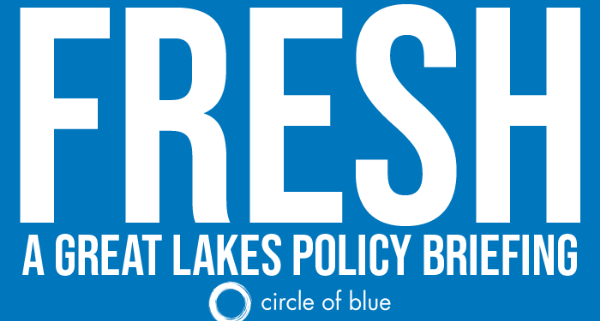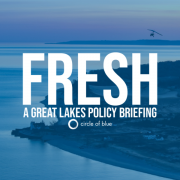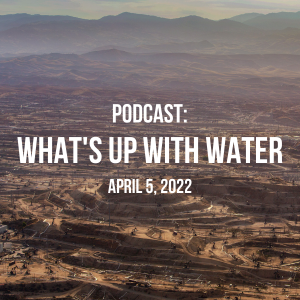FRESH: U.S. Lawmakers Propose Great Lakes Federal Agency

Point Betsie Lighthouse, Michigan. Photo © J. Carl Ganter / Circle of Blue
April 5, 2022
Welcome to Fresh!
Two countries, eight states, five lakes — and 84 percent of the continent’s surface fresh water. As water crises beset North America, all eyes are on the Great Lakes and the leaders, systems, and rules that govern them.
Let Circle of Blue reporters guide you through the biggest international, state, and local policy news stories facing the Great Lakes region today. Sign up today for Fresh: A Great Lakes Policy Briefing, straight to your inbox, every other Tuesday.
Thanks for joining the journey – and following the future of the Great Lakes.
— Laura Gersony, Fresh Editor
This Week’s Watersheds
- Minnesota state regulators are penalizing the oil and gas company Enbridge for harming groundwater during the construction of the Line 3 pipeline.
- New federal grants will allow the city of Detroit to fix local water systems.
- U.S. lawmakers are pushing to create a new agency dedicated to sustainable development in the Great Lakes region.
- Michigan’s legislature considers a bill that could streamline communities’ access to federal infrastructure funds.
- The fate of a proposed wind farm on Lake Erie is in the hands of the Ohio Supreme Court.
In Ontario, a First Nations community has access to clean drinking water for the first time in nearly 15 years.
“Improving access ensures the health, safety, security and economic well-being of our community, which is so vital to our residents.”
— R. Donald Maracle, Mohawks of Bay of Quinte Chief.
For the first time in years, the Mohawks of Bay of Quinte First Nation will have access to clean running water, the Toronto Star reports. Five water systems in the community, which have been under long-term drinking water advisories since 2008, are now being served by a new water filtration plant. The fruit of over $50 million in Federal and Nation investments, the plant went online last week, providing clean water to 280 homes.
Why it matters: Dozens of First Nations across Canada have faced chronic drinking water issues. Federal leaders have begun to address the crisis, though a recent report found that more funding is needed, Circle of Blue reported in December.
Fresh from the Great Lakes News Collaborative
Michigan is spending big on infrastructure. Its problems are even bigger — Bridge Michigan
Small portions: Michigan puts PFAS advisory on Lake Superior rainbow smelt — Bridge Michigan
The Great Lakes News Collaborative includes Bridge Michigan; Circle of Blue; Great Lakes Now at Detroit Public Television; and Michigan Radio, Michigan’s NPR News Leader. We work together to produce news and information about the impact of climate change, pollution, and aging infrastructure on the Great Lakes and drinking water. This independent journalism is supported by the Charles Stewart Mott Foundation. Find all the work here.

Damage of Line 3 Pipeline Construction More Severe Than Previously Known
Minnesota’s Department of Natural Resources is imposing additional penalties on Enbridge, the company that owns the Line 3 oil pipeline, for harming groundwater during its construction. State regulators announced last week that the pipeline’s construction ruptured aquifers more than was initially estimated, with three breaches that displaced a total of 300 million gallons of water. The most serious breach occurred next to the Fond du Lac Band of Lake Superior Reservation in St. Louis County. Fiercely challenged by environmental and tribal groups, the pipeline was completed in September.
In context: Amid Extreme Heat and Drought, Line 3 Pipeline Construction Puts Water At Risk
In the News
DETROIT: Metro Detroit will soon receive $6 million in federal grants earmarked for “local projects” in the city. Representative Brenda Lawrence announced last week that several communities will receive $800,000 to replace aging infrastructure — much of which, local leaders say, is beyond repair. The funding comes alongside billions expected to flow into Lansing in the recently passed federal infrastructure package. Other grants will be spent on projects to reduce gang violence, restore historic sites, and fund health technology.
ON THE HILL: U.S. representatives from Great Lakes states are pushing for the creation of a new federal agency dedicated to sustainable economic development in the Great Lakes region. The proposed Great Lakes Authority would focus on workforce development and environmental conservation in the region that lawmakers call the “core of the United States’ commercial and defense industrial base.” If passed, the agency would have an annual budget of $50 million. Rep. Marcy Kaptur of Ohio introduced the bill, which eight other Democratic lawmakers have endorsed.
Looking Ahead
INFRASTRUCTURE: Michigan’s House of Representatives is considering legislation which would streamline communities’ access to federal infrastructure funding. The bills would change the criteria by which funding applications are evaluated, and would amend definitions of terms such as “disadvantaged community.” Lawmakers argue that this will make it easier for vulnerable communities to secure funding for wastewater and drinking water projects. Last year, a University of Michigan report found that federal revolving fund money was less likely to be allocated towards projects in smaller or more racially diverse areas.
RENEWABLE ENERGY:A legal battle is brewing off the shores of Lake Erie, where two Cleveland residents are challenging a proposed wind farm over its potential harm to birds and bats, WKSU reports. Wind development has struggled to gain momentum in Ohio due to the state’s restrictions on land-based wind, repeal of renewable energy mandates, and a legal framework which makes it easy for citizens to challenge wind projects. Though environmental groups and state agencies believe the impact on wildlife will be minimal, the case has lasted for five years. Parties are currently awaiting a verdict from the Ohio Supreme Court.
Other News
- The Minnesota Pollution Control Agency announced a new statewide monitoring system for PFAS, the family of toxic chemicals sweeping across water systems in the Midwest and beyond.
- Lead pipe replacement is underway in Benton Harbor, the majority-Black Michigan city which faced an acute drinking water crisis last year.
- Michigan governor Gretchen Whitmer has signed over $4 billion for infrastructure projects in the state.
Laura Gersony covers water policy, infrastructure, and energy for Circle of Blue. She also writes FRESH, Circle of Blue’s biweekly digest of Great Lakes policy news, and HotSpots H2O, a monthly column about the regions and populations most at-risk for water-related hazards and conflict. She is an Environmental Studies and Political Science major at the University of Chicago and an avid Lake Michigan swimmer.







Leave a Reply
Want to join the discussion?Feel free to contribute!